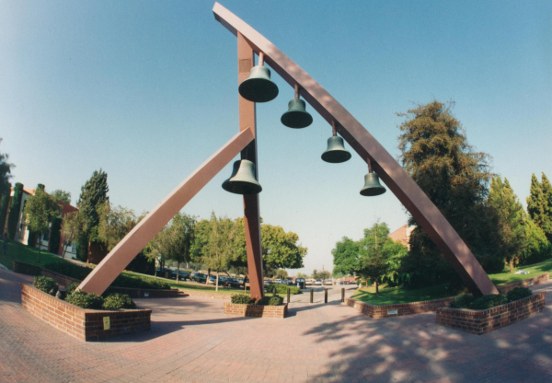podcast 337 – Chris Date’s Search for a Viable Trinity Theory – Part 2
Could each divine “Person” of the Trinity be either an attribute of God or God together with an attribute?
Could each divine “Person” of the Trinity be either an attribute of God or God together with an attribute?
Does it make sense to say that God is a soul with three cognitive and volitional faculties – but is nonetheless not a self?
When a NT author claims that Jesus fulfills an OT text which is about God, is that his way of saying that Jesus is God?
If you suffer from this affliction, I recommend repeated listens.
I was reading famous philosopher of religion John Hick‘s contribution to the 1982 book The Concept of Monotheism in Islam & Christianity, and ran across an interesting idea. Let me put it in context. If you know anything about Hick, you can guess that in his chapter he’s is ultimately trying to promote his unique theory of religious pluralism. Here’s the connection he sees between… Read More »Is the doctrine of the Incarnation prior to & the source of Trinitarian doctrine? – Part 1
Is it true that most ancients lacked the concept of numerical identity?
In my comments on his first salvo, I wondered exactly what Trinity doctrine Bowman means to defend. (Some kind of modalism?) After round two, I said that Bowman has owned up to affirming a contradiction – trying to pass it off as a “mystery”, i.e. a merely apparent contradiction. In round 3, Bowman ignores these fundamental conceptual difficulties for his position, and soldiers on with… Read More »SCORING THE BURKE – BOWMAN DEBATE – Bowman 3

Like about everything else these days.
In this post I want to explore what to me is the oddest and hardest part to grasp of the constitution trinitarianism. When I first read their paper, I thought they thought God was a stuff – that is, that the term “God” referred to a certain thing, that immaterial stuff they call “the divine essence”. That was wrong on two counts. For as we’ve seen, “the divine essence” isn’t supposed to be a thing (although they think it wouldn’t be a catastrophe if they admitted it was a thing – see their footnote 10). Hence, it can’t be a thing which is identical to God. Second, they don’t think that “God”, say, when used in a Psalm, refers to that stuff. So, what do they think it refers to? It depends. They hold that it’s a systematically ambiguous term. Why is that?Read More »Constitution Trinitarianism Part 5: Ambiguous God-talk
“For all its complexity, the biblical doctrine of the Trinity can be stated in seven simple propositions.”
At the end of the gospel according to Matthew, Jesus is portrayed as saying, “All authority in heaven and on earth has been given to me. Go therefore and make disciples of all nations, baptizing them in the name of the Father and of the Son and of the Holy Spirit…”
Does Aristotle discuss the concept of numerical identity in only one passage?
Thanks to our friend Alvin Kimel for linking my post Jesus, God, and an inconsistent triad. Check out his post and the ensuing discussion here. Unfortunately, the fact that I’m a unitarian seems to distract him from the actual purpose of the post. He says, In this article he hopes to persuade us that the classical trinitarian doctrine is logically absurd. No. That is not… Read More »dialogue on God, Jesus, and identity with Alvin Kimel
 Over at Biola’s alumni magazine, Winter 2011 issue, theologian Fred Sanders has a piece in which he argues,
Over at Biola’s alumni magazine, Winter 2011 issue, theologian Fred Sanders has a piece in which he argues,
The Trinity is a biblical doctrine, but let’s admit it: There’s something annoying about how hard it is to put your finger on a verse that states the whole doctrine.
The Bible presents the elements of the doctrine in numerous passages, of course: that there is only one God; that the Father is God; that the Son is God; and that the Spirit is God. We can also tell easily enough that the Father, Son and Spirit are really distinct from one another, and are not just three names for one person. If you hold all those clear teachings of Scripture in your mind at one time and think through them together, the doctrine of the Trinity is inevitable. Trinitarianism is a biblical doctrine and all the ingredients are given to us there: Just add thought and you have the classic doctrine. (emphases added)
Hmmm…. I would have thought that the elements of “the” doctrine included that the three are same substance or essence (homoousios). And that the there are co-equal, and co-eternal, uncreated, though the Father timelessly generates the Son, and the Spirit proceeds from him (or if you’re Western/Latin – from both Father and Son). Maybe something about their having one “divine nature” as well.Read More »No “Trinity Verse” – A Good Thing?
Maria Rosa Antognazza teaches at King’s College London, where she also directs the Centre for the History of Philosophical Theology. She has written a highly praised forthcoming intellectual biography of the great Leibniz. Below is my review of her book pictured here. The review is forthcoming in Religious Studies. Bottom line: Leibniz employs positive and negative mysterian moves, as well as rational reconstruction of the… Read More »Dealing with Apparent Contradictions: Part 19 – Review of Antognazza on Leibniz
Dr. Mike Licona argues that the real, historical man Jesus considered himself to be God.
“Then Jesus, filled with the power of the Spirit, returned to Galilee… He began to teach in their synagogues and was praised by everyone.”
A would-be teacher on trinitarian topics is merely an incoherent tritheist.
William Lane Craig makes some false and misleading claims about the New Testament Jesus.